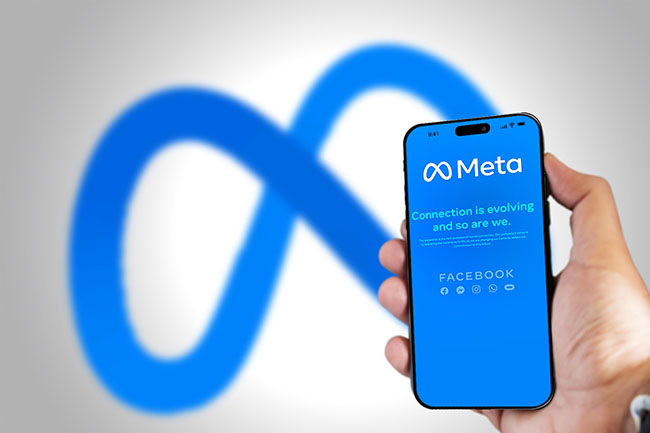Influencer marketing has experienced significant growth in recent years, becoming a powerful strategy for businesses to reach and engage their target audience. With the rise of social media and the increasing trust consumers place in recommendations from influencers, brands are leveraging these partnerships to drive awareness, credibility, and conversions.
Here are several stats that highlight the growth and impact of influencer marketing:
- The influencer marketing industry reached $16.4 billion in 2022, demonstrating its substantial growth and widespread adoption.
- Brands are allocating more budget towards influencer marketing campaigns, with 63% of marketers planning to increase their influencer marketing budget in the next year.
- Influencer marketing delivers a strong ROI, with businesses generating an average of $5.20 in earned media value for every $1 spent on influencer marketing.
- Micro-influencers, who have a smaller but more engaged following, deliver higher engagement rates, with an engagement rate of 18%.
- 86% of women turn to social media for purchasing advice, showcasing the trust consumers place in influencers’ recommendations. Authenticity is key, as 63% of consumers trust influencers who showcase real-life experiences and products.
What Is Influencer Marketing?
Influencer marketing is a strategy that involves partnering with influential individuals, known as influencers, to promote products or services and reach a wider audience. Influencers are individuals who have established credibility, expertise, and a loyal following in a specific niche or industry, often on social media platforms.
By collaborating with influencers, brands can tap into their influence and leverage their authentic content to create brand awareness, drive engagement, and potentially increase sales. Influencer marketing can take various forms, including sponsored content, product reviews, endorsements, giveaways, and more.
It is a powerful way for brands to connect with their target audience through trusted and relatable voices, leveraging the influencer’s reach and influence to achieve marketing objectives.
Importance Of Influencer Marketing in Online Advertising
Influencer marketing plays a significant role in online advertising due to its unique benefits and effectiveness in reaching and engaging audiences.
Here are some key reasons why influencer marketing is important in online advertising:
- Trust and Authenticity: Influencers have built a loyal following and trust with their audience. When they recommend or endorse a product or service, it comes across as more genuine and authentic, leading to higher trust and credibility among consumers.
- Targeted Reach: Influencers specialize in specific niches or industries, allowing brands to precisely target their desired audience. By partnering with influencers relevant to their industry, brands can reach a highly targeted and engaged audience that is more likely to be interested in their products or services.
- Enhanced Brand Awareness: Influencers have the power to expose brands to a wider audience and increase brand visibility. Through their content, influencers can introduce brands to new potential customers, generating awareness and capturing attention in a crowded online landscape.
- Engagement and Interactivity: Influencers foster a sense of community and actively engage with their followers. By collaborating with influencers, brands can create interactive campaigns, such as contests, giveaways, or interactive content, which encourage audience participation and drive engagement.
- Social Proof and Purchase Influence: Influencer recommendations hold significant sway over consumer purchase decisions. Many consumers rely on influencers for product reviews, recommendations, and insights before making a purchase, making influencer marketing an effective way to influence buying behavior.
- Content Creation and Storytelling: Influencers are skilled content creators, and their collaborations often result in high-quality and visually appealing content. This content can be repurposed by brands across various marketing channels, extending the reach and longevity of the influencer campaign.
- Measurable Results: Influencer marketing campaigns can be tracked and measured to assess their impact. Brands can evaluate key performance metrics, such as reach, engagement, conversions, and return on investment (ROI), to determine the effectiveness and success of their influencer collaborations.
Mention Popular Social Media Platforms for Influencer Marketing
There are several popular social media platforms that are commonly used for influencer marketing.
Here are some of the key platforms:
- Instagram: Instagram is one of the leading platforms for influencer marketing. With its visual focus and large user base, it allows influencers to create engaging content through photos, videos, and Stories, making it ideal for showcasing products and lifestyle recommendations.
- YouTube: YouTube is a popular platform for video content and has a vast community of content creators who serve as influencers. YouTube influencers can create product reviews, tutorials, vlogs, and other forms of content that allow for in-depth engagement with their audience.
- TikTok: TikTok has rapidly gained popularity, particularly among younger audiences. Its short-form video format and creative tools make it a powerful platform for influencer marketing, enabling influencers to showcase products, trends, and challenges in a fun and engaging way.
- Facebook: While Facebook is primarily known as a social networking platform, it also offers opportunities for influencer marketing. Brands can collaborate with influencers to create sponsored posts, live streams, or video content that reaches a wide range of users.
- Twitter: Twitter is a platform for real-time updates and conversations. Influencers with a strong presence on Twitter can share their opinions, recommendations, and engage in conversations related to brands or products, making it a platform for influencer marketing campaigns.
- LinkedIn: LinkedIn is a professional networking platform that is increasingly being used for influencer marketing in the B2B space. Influencers on LinkedIn can share industry insights, thought leadership content, and collaborate with brands targeting a professional audience.
The Impact of Influencer Marketing on Online Advertising
Influencer marketing has a significant impact on online advertising, revolutionizing the way brands connect with their target audience.
Here are some key impacts of influencer marketing on online advertising:
- Increased Brand Awareness: Influencer marketing helps brands reach a wider audience and increase brand visibility. When influencers endorse or promote a brand, their followers become aware of the brand and its offerings, leading to heightened brand recognition and recall.
- Trust and Credibility: Influencers have established trust and credibility with their audience. When they recommend or endorse a product or service, it resonates with their followers, leading to a higher level of trust compared to traditional advertising. This trust translates into increased confidence and willingness to try or purchase the recommended products.
- Targeted Audience Engagement: Influencers specialize in specific niches, allowing brands to reach a highly targeted and engaged audience. By collaborating with influencers relevant to their industry, brands can connect with the right audience segment that is more likely to be interested in their products or services. This targeted engagement leads to higher conversion rates and a more efficient use of advertising budgets.
- Authenticity and Relatability: Influencers are known for their authenticity and relatability. They create content that reflects their own experiences, opinions, and lifestyles, which resonates with their followers. This authenticity helps to build a genuine connection between the influencer, the brand, and the audience, fostering a positive perception and a stronger brand-consumer relationship.
- Social Proof and Influence: Influencers have the power to shape consumer behavior through their recommendations and endorsements. When influencers showcase products or services, their audience perceives it as social proof, influencing their purchasing decisions. Many consumers rely on influencer reviews and recommendations to validate their choices, making influencer marketing a persuasive form of online advertising.
- Content Creation and Distribution: Influencer collaborations generate high-quality and engaging content that can be leveraged across various marketing channels. This content not only promotes the brand but also tells a story, capturing the attention and interest of the audience. Brands can repurpose this content for their own social media, website, email marketing, and other advertising efforts, maximizing the reach and impact of their campaigns.
- Measurable Results and ROI: Influencer marketing campaigns can be tracked and measured, providing valuable insights into their performance and return on investment. Brands can analyze key metrics such as reach, engagement, conversions, and sales attributed to influencer collaborations. This data-driven approach enables brands to optimize their strategies, identify successful influencers, and allocate resources effectively.
Future Of Influencer Marketing: Predictions and Forecasts.
The future of influencer marketing holds immense potential as a key component of future digital marketing trends.
Here are some predictions and forecasts for the future of influencer marketing:
- Continued Growth: Influencer marketing is expected to witness significant growth in the coming years. According to a report by Business Insider Intelligence, influencer marketing ad spend is projected to reach $15 billion by 2022, indicating a substantial increase from previous years.
- Micro-Influencers on the Rise: While macro-influencers have been dominant, the focus is shifting towards micro-influencers with smaller but highly engaged audiences. Micro-influencers are seen as more relatable and trustworthy, leading to higher engagement rates and better conversions.
- Authenticity and Transparency: Consumers are demanding more authenticity and transparency from influencers and brands. This trend is expected to continue, with influencer marketing strategies emphasizing genuine connections and honest content that aligns with the influencer’s values and the audience’s interests.
- Video Content Dominance:Video content is gaining momentum across social media platforms, and influencer marketing will increasingly leverage video as a primary form of content. Short-form videos, live streams, and stories will become more prevalent, allowing influencers to connect with their audience in a more dynamic and engaging way.
- Long-term Partnerships: Brands will focus on building long-term partnerships with influencers instead of one-off campaigns. By forging deeper relationships, brands can create consistent brand messaging and develop stronger connections with their target audience over time.
- Diversification of Platforms: While platforms like Instagram and YouTube have been dominant in influencer marketing, new platforms and formats will emerge. TikTok, for instance, has gained immense popularity and presents opportunities for brands to collaborate with influencers in creative and authentic ways.
- Data-Driven Influencer Selection: Brands will rely more on data and analytics to select influencers that align with their target audience and campaign goals. Advanced tools and technologies will enable brands to identify influencers based on demographics, engagement rates, and audience insights, leading to more effective and targeted influencer partnerships.
- Influencer Content Creation Agencies: With the increasing demand for influencer-generated content, specialized content marketing agencies will emerge to facilitate content creation and distribution. These agencies will connect brands with a network of influencers, streamline content creation processes, and ensure consistent brand messaging.
- Influencer Marketing Regulations: As influencer marketing grows, regulations and guidelines surrounding endorsements, sponsored content, and disclosure will become stricter. Brands and influencers will need to navigate these regulations to maintain transparency and trust with their audience.
- AI and Automation Integration: Artificial intelligence and automation will play a significant role in influencer marketing, streamlining processes such as influencer discovery, campaign management, and performance tracking. AI-powered tools will provide valuable insights and optimize influencer marketing strategies for better results.
Conclusion
The future of influencer marketing within the realm of future digital marketing trends is bright and promising. As brands recognize the impact and effectiveness of influencer marketing, the industry is set to experience continued growth and evolution.
With a shift towards micro-influencers, emphasis on authenticity and transparency, the dominance of video content, and the integration of data-driven strategies and AI technologies, influencer marketing will continue to be a powerful tool for brands to connect with their target audience in meaningful ways.
By staying ahead of the curve, adapting to emerging platforms, and building long-term partnerships with influencers, brands can harness the full potential of influencer marketing and drive impactful online advertising campaigns in the years to come.





Tell us your thoughts in the comments